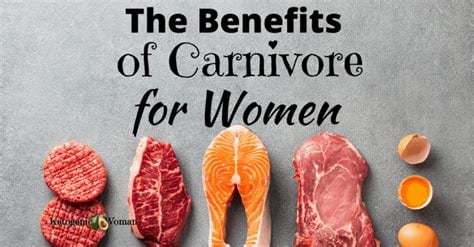
The dietary landscape has undergone a dramatic transformation in recent years. As individuals increasingly pursue lifestyles that promote optimal health, sustainability, and ethical practices, two diets have emerged as polar opposites: the carnivore diet and veganism. This comprehensive analysis explores these dietary approaches in depth, comparing nutritional benefits, environmental impacts, social implications, economic factors, and the controversies that surround them. In doing so, we aim to provide an unbiased, well-rounded perspective that helps readers make informed decisions based on scientific evidence and ethical considerations.
In a world where food choices are not just a matter of taste but also an expression of personal values and lifestyle, the debate between meat-centered and plant-based diets has never been more heated. The carnivore diet, which focuses exclusively on animal products, has gained traction among individuals seeking to simplify their nutritional intake and address specific health concerns. Conversely, veganism, a lifestyle and diet that excludes all animal products, is celebrated for its potential to improve health, reduce environmental footprints, and uphold animal rights.
This article delves into the key components of each diet, exploring how they influence human health, the environment, and societal norms. By comparing these two distinct dietary approaches, we aim to provide readers with a clearer understanding of the benefits, challenges, and long-term implications associated with each.
The Carnivore Diet
Origins and Philosophy
The carnivore diet is based on the idea that humans thrive best when consuming primarily or exclusively animal products. Advocates argue that ancestral diets, rich in meat and animal fats, contributed to human evolution and optimal health. The modern carnivore movement rejects the notion that carbohydrates are essential for survival, instead emphasizing protein and fat as the primary sources of energy.
Key Components and Practices
Followers of the carnivore diet typically consume:
A. Red and White Meats – Including beef, lamb, pork, and poultry, which are seen as nutrient-dense sources of protein and essential fats.
B. Organ Meats – Often included for their high vitamin and mineral content, contributing to a more comprehensive nutrient profile.
C. Animal Fats – Used for cooking and as a calorie source, these fats are preferred over processed plant oils.
D. Minimal or No Plant-Based Foods – Vegetables, fruits, grains, and legumes are generally excluded, based on the belief that they provide little nutritional benefit or may even cause inflammation in some individuals.
Potential Benefits
Proponents of the carnivore diet claim that it can lead to:
- Improved Mental Clarity: Many adherents report enhanced cognitive function and mental focus.
- Weight Loss: A reduction in carbohydrate intake often leads to lower insulin levels and subsequent fat loss.
- Reduced Inflammation: Some individuals experience relief from autoimmune and inflammatory conditions.
- Simplified Eating: With fewer food groups to choose from, meal planning becomes less complex.
Challenges and Criticisms
Despite these potential benefits, the carnivore diet is not without controversy:
- Nutrient Deficiencies: Critics argue that eliminating plant-based foods can lead to deficiencies in fiber, certain vitamins, and antioxidants.
- Long-Term Health Risks: The long-term effects of a meat-only diet remain a subject of debate among nutrition experts.
- Environmental Impact: A heavy reliance on animal agriculture has significant implications for sustainability and resource use.
Exploring Veganism
Definition and Core Principles
Veganism is more than a diet—it is a lifestyle that seeks to exclude the exploitation of animals for food, clothing, or any other purpose. The vegan diet focuses on plant-based foods, emphasizing whole grains, legumes, fruits, vegetables, nuts, and seeds. Ethical, environmental, and health reasons all converge to promote this way of life.
Nutritional Profile
Vegan diets can offer a wide range of health benefits when well-planned:
A. Abundance of Fiber: Plant-based foods provide high levels of dietary fiber, which aids digestion and promotes gut health.
B. Rich in Antioxidants: Fruits and vegetables supply vitamins and antioxidants that help combat oxidative stress.
C. Low in Saturated Fats: A vegan diet naturally limits the intake of saturated fats, potentially reducing the risk of cardiovascular diseases.
D. Phytochemicals: These compounds, found in plants, have been linked to reduced risks of certain cancers and chronic diseases.
Benefits of Veganism
Many studies and personal testimonies suggest that veganism can lead to:
- Improved Heart Health: Lower levels of cholesterol and blood pressure are common among vegans.
- Weight Management: High fiber and low-calorie foods contribute to maintaining a healthy weight.
- Ethical Fulfillment: By avoiding animal products, vegans align their diet with their ethical beliefs concerning animal rights.
- Environmental Sustainability: Plant-based diets generally require fewer natural resources and generate less greenhouse gas emissions than meat-based diets.
Potential Drawbacks
Despite its advantages, veganism also presents some challenges:
- Nutritional Gaps: Without careful planning, vegans may face deficiencies in vitamin B12, iron, omega-3 fatty acids, and calcium.
- Social Challenges: In a society where meat consumption is the norm, vegans may encounter social and cultural resistance.
- Accessibility and Cost: Depending on geographical location, obtaining a diverse range of plant-based foods can be challenging and sometimes more expensive.
Nutritional Comparison: Carnivore vs. Vegan
Macronutrients and Micronutrients
The fundamental differences between the carnivore diet and veganism extend to their nutrient profiles. A detailed comparison of key nutritional elements is outlined below:
A. Protein Sources:
- Carnivore Diet: Relies entirely on animal protein, which provides complete amino acid profiles essential for muscle repair and immune function.
- Veganism: Requires careful combination of plant proteins (e.g., beans, lentils, tofu) to ensure all essential amino acids are obtained.
B. Fats and Cholesterol:
- Carnivore Diet: High intake of saturated fats and cholesterol, which some studies link to heart disease, though proponents argue that natural animal fats can be beneficial in moderation.
- Veganism: Typically features higher levels of unsaturated fats found in nuts, seeds, and avocados, which can support cardiovascular health.
C. Vitamins and Minerals:
- Carnivore Diet: Provides vitamins such as B12 and minerals like zinc and iron in their heme form, which are more bioavailable. However, it may lack fiber, vitamin C, and various phytonutrients.
- Veganism: Rich in vitamins C, E, and folate, along with dietary fiber and antioxidants. However, careful supplementation or dietary planning is necessary to avoid deficiencies in B12, iron, and calcium.
D. Digestive Health:
- Carnivore Diet: The absence of dietary fiber can lead to digestive challenges, including constipation and altered gut microbiota.
- Veganism: High fiber intake supports healthy digestion, although some individuals might experience bloating or gas if their diet is not well-balanced.
Balancing Nutrient Intake
Both diets require a thoughtful approach to nutrition:
-
Carnivore Diet Considerations:
- Incorporating a variety of animal products, including organ meats, may help mitigate some nutritional deficiencies.
- Proponents suggest periodic monitoring of blood lipid profiles and other biomarkers to ensure overall health.
-
Vegan Diet Strategies:
- Using fortified foods and supplements can help address potential gaps in vitamin B12, iron, and omega-3 fatty acids.
- Diversifying plant sources and combining complementary proteins can create a balanced amino acid profile.
Health Implications of Both Diets
Impact on Chronic Diseases
Health outcomes related to chronic conditions are a major point of discussion:
-
Cardiovascular Health:
- Research indicates that high intake of animal fats, as seen in the carnivore diet, might increase the risk of heart disease for some individuals. However, some proponents argue that when sourced from grass-fed and pasture-raised animals, these risks can be minimized.
- Vegan diets have been consistently associated with lower blood pressure, reduced cholesterol levels, and decreased risk of cardiovascular events.
-
Inflammation and Autoimmune Conditions:
- Some individuals report significant improvements in autoimmune symptoms when adopting a carnivore diet, suggesting that eliminating plant compounds may reduce inflammatory triggers.
- Conversely, the anti-inflammatory properties of many plant-based foods in a vegan diet are credited with mitigating chronic inflammation and supporting immune function.
-
Metabolic Health:
- The carnivore diet’s low carbohydrate intake can lead to ketosis, a metabolic state that promotes fat loss and improved insulin sensitivity for some people.
- Veganism, with its emphasis on whole grains and legumes, also supports stable blood sugar levels and may reduce the risk of type 2 diabetes.
Mental and Cognitive Effects
The mental health impact of dietary choices is a burgeoning field of study:
-
Carnivore Diet:
- Some adherents of the carnivore diet report enhanced mental clarity and reduced brain fog, attributing these effects to the high intake of fats and proteins.
- However, the lack of dietary fiber and certain micronutrients may negatively impact gut health, which is increasingly linked to cognitive and emotional well-being.
-
Vegan Diet:
- A diet rich in fruits, vegetables, and whole grains provides a range of antioxidants and phytochemicals that support brain health.
- Nonetheless, inadequate levels of omega-3 fatty acids—a nutrient critical for brain function—can be a challenge for vegans unless supplemented appropriately.
Personalization and Genetic Factors
It is important to note that individual responses to these diets can vary greatly:
A. Genetic Predispositions:
- Certain genetic markers may predispose individuals to benefit more from one diet over another.
- Personalized nutrition is emerging as a critical tool in optimizing dietary choices for health.
B. Pre-Existing Conditions:
- People with specific health issues or metabolic disorders might find that one diet alleviates their symptoms better than the other.
- Medical supervision and regular health screenings are advised for anyone undertaking significant dietary changes.

Environmental and Ethical Considerations
Sustainability and Ecological Impact
The environmental footprint of our food choices is a significant concern in today’s world:
-
Carnivore Diet:
- Animal agriculture is resource-intensive, often requiring large amounts of water, land, and feed. This can lead to deforestation, greenhouse gas emissions, and biodiversity loss.
- Supporters argue that regenerative farming practices and sourcing from local, sustainable farms can mitigate some environmental impacts.
-
Veganism:
- Plant-based diets generally have a lower environmental impact, as they require fewer natural resources per calorie produced.
- However, not all plant-based foods are created equal; industrial farming practices and monocultures can also have significant ecological repercussions.
Ethical Dimensions
Ethical considerations play a major role in the dietary choices of many individuals:
A. Animal Welfare:
- Veganism is often embraced as an ethical stance against animal exploitation, aligning with values of compassion and non-violence.
- The carnivore diet, by contrast, is frequently criticized for its reliance on animal products and the welfare issues inherent in conventional animal agriculture.
B. Social Justice:
- Vegan diets are sometimes linked to broader movements advocating for environmental justice, sustainable living, and equitable food distribution.
- The debate over the carnivore diet also touches on issues of food sovereignty and the rights of rural communities involved in animal husbandry.
C. Cultural Traditions:
- Both diets have cultural dimensions—while veganism is often associated with modern ethical movements, meat-based diets are deeply ingrained in the culinary traditions of many societies.
Social and Cultural Perspectives
Public Perception and Media Influence
The way society views these diets has evolved over time:
-
Carnivore Diet:
- Often portrayed as a radical or countercultural approach, the carnivore diet garners both fervent support and sharp criticism.
- Media coverage tends to highlight dramatic personal testimonials, sometimes overshadowing the scientific nuances.
-
Veganism:
- Veganism has moved from a niche lifestyle to a mainstream trend, embraced by celebrities, athletes, and environmental activists.
- Social media platforms and documentaries have played a significant role in popularizing vegan lifestyles, though they also contribute to polarized opinions.
Lifestyle Integration
How individuals integrate these diets into their daily lives varies widely:
A. Community and Support Networks:
- Many vegans find community through social groups, online forums, and local meet-ups that share recipes and ethical advice.
- Carnivore diet enthusiasts often rely on specialized forums, podcasts, and expert talks to navigate dietary challenges and share success stories.
B. Culinary Creativity:
- Vegan cooking has seen a surge in innovation, with chefs and home cooks experimenting with plant-based substitutes for traditional dishes.
- Although the carnivore diet appears restrictive, creative preparation of various cuts of meat and organ dishes can yield a diverse array of meals.
C. Cultural Adaptation:
- In multicultural societies, both diets face the challenge of adapting traditional recipes to fit modern health ideologies.
- Restaurants and food services are increasingly offering vegan options, while niche carnivore establishments cater to those who prefer meat-heavy menus.

Economic Considerations
Market Trends and Consumer Behavior
The shift in dietary trends is influencing global markets:
-
Demand for Plant-Based Alternatives:
- The rise in veganism has spurred significant growth in the plant-based food sector, with innovations ranging from dairy substitutes to meat analogs.
- Consumers are increasingly seeking products that are not only healthy but also ethically and sustainably produced.
-
Animal Product Industries:
- Despite the growing popularity of veganism, the meat and dairy industries remain dominant in many parts of the world.
- Niche markets, such as organic, grass-fed, and ethically sourced animal products, are emerging to meet the demands of more health-conscious consumers.
Agricultural and Supply Chain Impacts
The economic ramifications extend to the agricultural sector:
A. Resource Allocation:
- Animal agriculture requires extensive land, water, and feed resources, which can strain environmental systems if not managed sustainably.
- Conversely, plant-based agriculture often relies on monocultures, which may lead to soil degradation if sustainable practices are not implemented.
B. Job Creation and Economic Sustainability:
- Both industries support millions of jobs globally, from farming and production to retail and food service.
- Transitioning to more sustainable practices in either sector may require significant investment and policy changes, impacting economies at local and national levels.
C. Future Market Trends:
- With increasing consumer awareness about health and environmental issues, both the vegan and carnivore markets are expected to continue evolving.
- Innovation in food technology, including lab-grown meats and advanced plant-based substitutes, may redefine the future of dietary consumption.
Controversies and Debates
Scientific Evidence Versus Anecdotal Claims
Both diets have passionate advocates and detractors, leading to a landscape rife with controversies:
-
Carnivore Diet Controversies:
- Critics argue that the carnivore diet oversimplifies human nutritional needs and disregards the benefits of plant-based compounds.
- While many testimonials support its effectiveness in managing certain health conditions, long-term, large-scale studies are limited.
-
Veganism Debates:
- Opponents of veganism point to potential nutritional deficiencies and the social challenges of maintaining a strictly plant-based diet.
- Proponents emphasize robust scientific evidence that supports the health benefits and environmental sustainability of veganism when properly managed.
Addressing Common Myths
Misinformation is rampant in any debate, and both diets are subject to myths that can mislead the public. Here are some common misconceptions:
A. Myth: The carnivore diet causes immediate and severe heart disease.
- Reality: While high saturated fat intake may be a concern for some, individual health outcomes depend on genetics, overall lifestyle, and the quality of animal products consumed.
B. Myth: Vegan diets are nutritionally incomplete and result in constant fatigue.
- Reality: When well-planned and supplemented appropriately, vegan diets can provide all the necessary nutrients for sustained energy and overall health.
C. Myth: One diet is universally superior to the other.
- Reality: Individual needs, genetic predispositions, and personal health goals determine which dietary approach may be more beneficial.
Future Trends and Research Directions
Personalized Nutrition
As research in nutrigenomics and personalized nutrition advances, the one-size-fits-all approach to diets is being reexamined. Both the carnivore and vegan diets are likely to benefit from more tailored recommendations based on genetic makeup, lifestyle factors, and metabolic health indicators.
Emerging Research Areas
Ongoing studies are exploring:
- Long-Term Effects: The need for extended clinical trials to determine the long-term impact of both diets on overall health.
- Microbiome Research: How each diet influences gut bacteria and its subsequent effects on immunity and mental health.
- Sustainable Food Systems: The development of innovative agricultural practices that balance nutritional needs with environmental stewardship.
Integration of Technological Advances
Technological innovations, such as artificial intelligence in dietary planning and lab-grown meat production, may further blur the lines between traditional diets. These developments hold the promise of offering consumers the best of both worlds—nutrient-rich, ethically sourced, and environmentally sustainable food options.
Conclusion
The debate between the carnivore diet and veganism is multifaceted, encompassing nutritional science, environmental sustainability, ethical considerations, and socio-economic factors. Each approach offers unique advantages and challenges:
- The carnivore diet appeals to those seeking simplicity, potential anti-inflammatory benefits, and the high bioavailability of animal-sourced nutrients. Yet, it raises concerns about long-term health risks, nutrient imbalances, and environmental sustainability.
- Veganism offers a diet rich in fiber, antioxidants, and ethical appeal, contributing to improved cardiovascular health and reduced ecological footprints. However, it demands careful nutritional planning to avoid deficiencies and faces social challenges in predominantly meat-based cultures.
Ultimately, the choice between these diets is deeply personal. It requires individuals to consider their unique health needs, lifestyle preferences, and ethical values. Future research and personalized nutrition are poised to refine our understanding, helping each person find a balance that optimizes both personal well-being and the health of our planet.
By critically evaluating the evidence and understanding the broader implications of our dietary choices, consumers can make decisions that not only enhance their own lives but also contribute to a more sustainable and equitable world.








